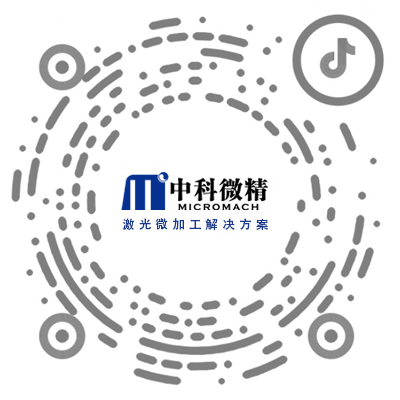The core of whether scientific and technological achievements can be successfully transformed lies in "people." Unblocking the mechanism for the transformation of scientific and technological achievements is an important means to ensure the reasonable benefits of scientific researchers and to improve their enthusiasm.
The Xi'an Institute of Optics and Precision Mechanics and the Dalian Institute of Chemical Physics of the Chinese Academy of Sciences have boldly reformed and implemented equity incentives for scientific researchers, with the proportion of shares held determined by the market value of the achievements. At the same time, the ownership and income rights of the shares are distinguished, achieving rewards that cover the entire process of transformation of scientific and technological achievements. These measures have "unbound" the transformation of scientific and technological achievements, allowing scientific researchers to receive tangible material incentives and also adding fuel to their scientific dreams.
Yang Xiaojun is a researcher at the Xi'an Institute of Optics and Precision Mechanics of the Chinese Academy of Sciences (hereinafter referred to as the Xi'an Institute of Optics and Precision Mechanics), and his other identity is the chairman of Xi'an Zhongke Weijing Photonics Manufacturing Technology Co., Ltd. Every day, while Yang Xiaojun leads his team to focus on scientific research in the laboratory, he also handles company business and transforms scientific and technological achievements into applications. The ultra - fast laser high - end processing equipment produced by his company has solved the technical problems of China's aero - engine blade processing and has been applied in some domestic civil aircraft.
Researcher Ding Yunjie of the Dalian Institute of Chemical Physics of the Chinese Academy of Sciences (hereinafter referred to as the Dalian Institute of Chemical Physics), like Yang Xiaojun, has been committed to the research and transformation of applied technologies for many years. He has achieved many major results in developing laboratory basic research results to industrial demonstration or industrial applications, realizing industrial demonstration or industrialization of 7 technologies with an annual output value of 2 billion yuan.
From the initial difficulties in transforming scientific and technological achievements to the current increasing policy support for transformation and the protection of the benefits of scientific researchers, Yang Xiaojun and Ding Yunjie have the most profound experience.
Equity incentives, with market value determining the proportion of shares held
In 2000, after graduating from university, Yang Xiaojun entered the Xi'an Institute of Optics and Precision Mechanics and began to engage in research on applied technologies. In his memory, "the income of scientific researchers in the institute was generally low. Young people who just entered the institute only had a monthly salary of 800 yuan." The main reason was that the previous policy was too "rigid." For example, once scientific researchers had scientific and technological achievements, the bonus had to be shared with all employees. The contributions of the developers were not fully recognized, and the main interests were not respected.
Lacking a sense of achievement in his work, Yang Xiaojun once wanted to resign.
The turning point came in 2008. As the country paid more and more attention to the transformation of scientific and technological achievements, many traditional research institutes also began to study and explore how to realize the industrialization of scientific and technological achievements. The Xi'an Institute of Optics and Precision Mechanics also began to make bold reforms in relevant systems and mechanisms.
"In the past, after the Xi'an Institute of Optics and Precision Mechanics completed national tasks and project acceptance, many achievements were shelved, leading to the idleness of scientific research resources," said Zhao Wei, the former director of the Xi'an Institute of Optics and Precision Mechanics. "Traditional research institutes should face the main battlefield of the national economy and truly transform science and technology into real productive forces while completing national major scientific research tasks."
The core of whether scientific and technological achievements can be successfully transformed lies in "people," and the reform should fully mobilize the enthusiasm of scientific researchers. For scientific researchers who are determined to start a business and have the potential to be entrepreneurs, the Xi'an Institute of Optics and Precision Mechanics actively encourages and supports their entrepreneurship.
How to ensure the reasonable benefits of scientific researchers in the process of transforming scientific and technological achievements? In this regard, the Xi'an Institute of Optics and Precision Mechanics boldly adopted the equity incentive method, allowing scientific researchers to hold shares. The proportion of shares held by scientific researchers and investors is entirely allocated according to market value, and the institute does not intervene. "Scientific researchers engaged in the transformation of scientific and technological achievements can obtain cash rewards or equity rewards valued in shares. This fully ensures their benefits and greatly mobilizes their enthusiasm for innovation," said Xie Xiaoping, the deputy director of the Xi'an Institute of Optics and Precision Mechanics.
The reform effects of the institute are becoming more and more evident, and the fire in Yang Xiaojun's heart to do a business has also been rekindled. Since 2010, Yang Xiaojun has led his team to focus on the research and development of ultra - fast laser processing technology. After years of effort, he finally made a breakthrough. In 2015, with the full support of the institute, Yang Xiaojun founded a company and had a platform to realize his dream.
Refining rights and interests, rewards covering the entire transformation process
The industrialization research that Ding Yunjie is engaged in, in the field of syngas chemistry and fine chemical catalysis, is a typical applied research. He admitted that in the early days of transforming scientific and technological achievements, the biggest problem was the lack of funds, especially the labor fees and bonuses for the scientific researchers in the team. "Without corresponding rewards for the efforts, the enthusiasm for work is not so high," Ding Yunjie said.
In order to stimulate the enthusiasm of scientific researchers for innovation, in 2015, in accordance with the requirements of the newly revised "Law of the People's Republic of China on Promoting the Transformation of Scientific and Technological Achievements," the Dalian Institute of Chemical Physics revised the main clauses of the institute's "Regulations on External Investment and Income Management" three times in 2015, 2017, and 2019. The system follows the laws of the transformation of scientific and technological achievements and fully respects the main contributions of inventors and major personnel in the transformation of scientific and technological achievements.
"After the system was revised, 50% of the equity formed by the transformation of scientific and technological achievements in the institute was used to reward scientific researchers who made major contributions in the early stage. Among the remaining 50% of the shares, 40% of the income rights are used to reward scientific researchers who made major contributions after the transformation of scientific and technological achievements. The institute holds 5% of the equity income to reward management personnel," said Zhang Chen, director of the Intellectual Property and Technology Transfer Office of the Dalian Institute of Chemical Physics. This policy fully takes into account issues such as the updating of technology, the mobility of research group personnel, and the enthusiasm of management personnel. "By distinguishing the ownership and income rights of shares, rewards cover the entire process of transformation of scientific and technological achievements, effectively mobilizing the enthusiasm of all types of innovation entities."
In addition, the Dalian Institute of Chemical Physics has issued the "Management Measures for Horizontal Funds," which stipulates the reward methods for entrusted research and development, technology transfer, and technology licensing, keeping the reward income for different transformation methods in balance.
Ding Yunjie said: "In the past, 40% of the remaining funds of horizontal projects (funds from enterprises, etc.) were used as bonuses to reward research teams. Now the institute has increased this proportion to 80%. The income of the team's scientific researchers has increased, and their enthusiasm is also getting higher and higher."
In the past, the professional title evaluation of scientific researchers was often linked to the number of papers. Scientific researchers engaged in the transformation of scientific and technological achievements did not have an advantage in this regard. For this reason, many research institutes have reformed in this regard, carrying out classified evaluations for scientific researchers who are committed to different directions, and establishing scientific evaluation indicators oriented by ability and contribution.
"Successful projects in the transformation of scientific and technological achievements can also be used to participate in professional title evaluation. People don't have to worry about professional titles anymore," Ding Yunjie said.
Industry - academia - research combined, technology research and development in line with the market
Scientific and technical personnel who start businesses generally face two "one - kilometer" problems: one is the lack of start - up capital and the inability to take the "first - kilometer" step in entrepreneurship; the other is the lack of a transformation platform, making it difficult for scientific and technological achievements to be quickly transformed into products and complete the "last - kilometer."
Yang Xiaojun said: "In the early days of the company's establishment, the Xi'an Institute of Optics and Precision Mechanics solved these two major problems for us. The institute, together with the Xi'an High - Tech Zone, the Shaanxi Provincial Department of Science and Technology, and other institutions, jointly established a fund with social capital to provide the company with the first financial support. The institute also allowed some scientific researchers to work part - time in the company, and the experimental platform and research and development equipment could also provide research and development support for us at any time."
At the same time, Yang Xiaojun also continues to conduct his scientific research work in the State Key Laboratory of Transient Optics and Photonics Technology at the Xi'an Institute of Optics and Precision Mechanics. Xie Xiaoping said: "We encourage scientific researchers to engage in transfer and transformation, and at the same time, they can also undertake projects in the institute and jointly promote the development of disciplines with the institute, keeping research and development always full of innovative vitality."
The new model of industry - academia - research integration has also had a positive feedback effect on scientific research itself. "When we scientific researchers deal with the market, we can know what kind of technology the market needs, and then enrich the research of related disciplines in the institute. In the past, we used to look at literature to find directions, and the topics we studied were not of interest to enterprises. Now, by facing the market, it is beneficial to both the institute and the enterprise," Yang Xiaojun said.
In the Dalian Institute of Chemical Physics, there are many scientific researchers who do well in basic research and are also very effective in industrialization. Ding Yunjie is one of them. "When we encounter problems in the project, we will carefully study and explore the mechanism. Solving the problem promotes the progress of basic research at the same time. The two complement each other," Ding Yunjie said.
(Originally published in People's Daily, December 4, 2019, Page 12)


 微信公众号
微信公众号
 抖音
抖音
 视频号
视频号